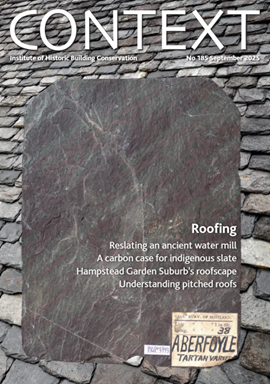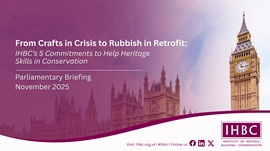Conservation area consent
Conservation area consent was introduced by section 74(1) of the Planning (Listed Building & Conservation Areas) Act 1990. This required conservation area consent for the demolition of most buildings in conservation areas.
However, the 2010, the Penfold Review, ‘Review of non-planning consents’, found that ‘…the complexity of the non-planning consents landscape and its interaction with the planning system impose additional costs and generate additional risk for businesses’, and proposed that conservation area consent should be dealt with by planning permission instead.
As a result, on 1 October 2013, the Enterprise and Regulatory Reform Act 2013 abolished conservation area consent, but replaced it with a similar requirement to obtain planning permission under the Town and Country Planning Act 1990 for the demolition of most buildings in conservation areas, including:
- Demolition of a building with a volume of more than 115 cubic metres.
- Demolition a gate, fence, wall or railing more than 1 metre high next to a highway or public open space, or more than 2 metres high elsewhere.
- Demolition of any building erected since 1 January 1914 and in use, or last used for agriculture or forestry.
Failure to obtain permission can result a fine, and / or a prison sentence of up to 2 years.
[edit] Find out more
[edit] Related articles on Designing Buildings Wiki
- Certificate of Lawfulness of Proposed Works.
- Civic Amenities Act.
- Conservation Area.
- Conservation in Chester.
- Conservation officer.
- Conservation practice survey 2016.
- Enterprise and Regulatory Reform Act 2013 and listed buildings.
- Enterprise and Regulatory Reform Act.
- Penfold review.
- Planning authority duty to provide specialist conservation advice.
- Principles of conservation.
- The history of conservation areas.
- Trees in conservation areas.
IHBC NewsBlog
Latest IHBC Issue of Context features Roofing
Articles range from slate to pitched roofs, and carbon impact to solar generation to roofscapes.
Three reasons not to demolish Edinburgh’s Argyle House
Should 'Edinburgh's ugliest building' be saved?
IHBC’s 2025 Parliamentary Briefing...from Crafts in Crisis to Rubbish Retrofit
IHBC launches research-led ‘5 Commitments to Help Heritage Skills in Conservation’
How RDSAP 10.2 impacts EPC assessments in traditional buildings
Energy performance certificates (EPCs) tell us how energy efficient our buildings are, but the way these certificates are generated has changed.
700-year-old church tower suspended 45ft
The London church is part of a 'never seen before feat of engineering'.
The historic Old War Office (OWO) has undergone a remarkable transformation
The Grade II* listed neo-Baroque landmark in central London is an example of adaptive reuse in architecture, where heritage meets modern sophistication.
West Midlands Heritage Careers Fair 2025
Join the West Midlands Historic Buildings Trust on 13 October 2025, from 10.00am.
Former carpark and shopping centre to be transformed into new homes
Transformation to be a UK first.
Canada is losing its churches…
Can communities afford to let that happen?
131 derelict buildings recorded in Dublin city
It has increased 80% in the past four years.














